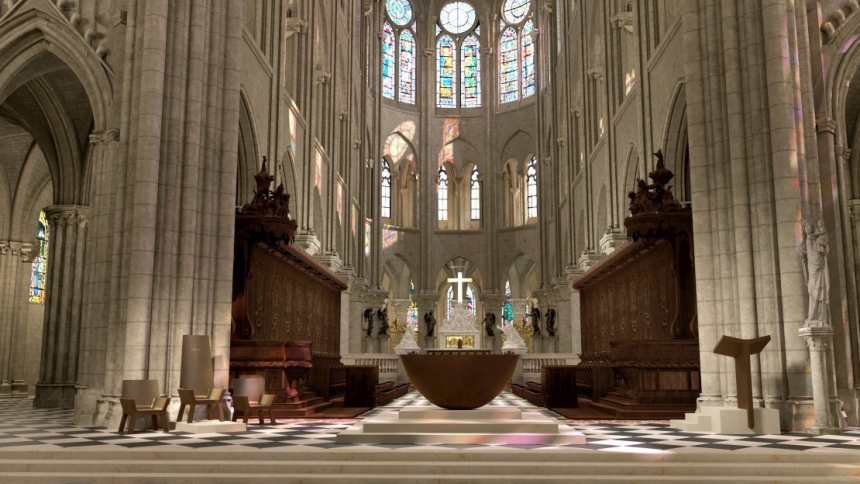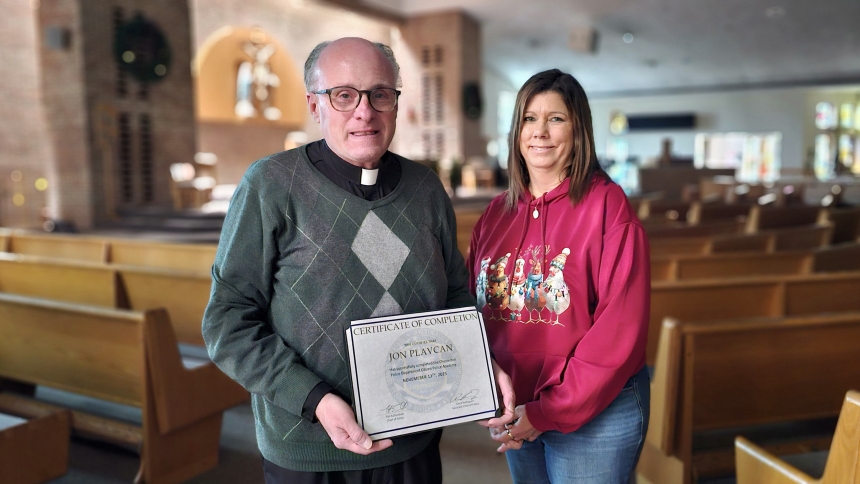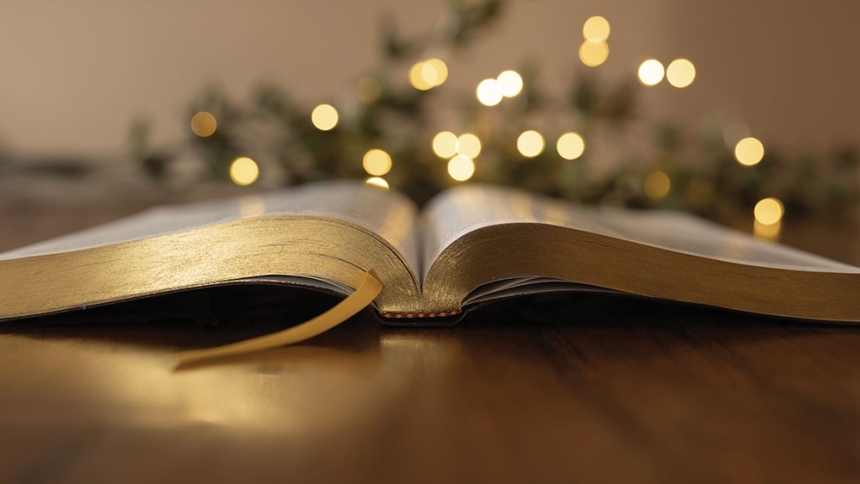
PARIS (OSV News) - Even if the spotlight is now on sports stadiums ahead of the July 26 opening of the Summer Olympic Games, a Notre Dame Cathedral guide with four decades of experience recommended it's the majesty of the cathedral one should turn to in the midst of the Games' craze in Paris.
Marie-Françoise Ousset has been guiding visitors around Notre Dame for 40 years as part of the volunteer guide association CASA Notre Dame. The cathedral will reopen December 8, after a five-year hiatus following the fire on April 15, 2019.
For Ousset, Île Saint-Louis, one of the two natural islands on the Seine River, from which one can see Notre Dame up close (the cathedral is located on the second island, Île de la Cité), is a haven of peace. "It is a delightful place where you can come in the evening to rest, and admire the view," she told OSV News. "Here, all the problems of the day disappear. This great lady of the 12th century is reassuring. Her beauty does you good, and you go home soothed."
When she saw on TV Notre Dame Cathedral burning in April 2019, she almost screamed, but now, 80-year-old Ousset, a tour guide for the City of Paris with 40 years of professional experience in the field, can only think of one thing - the icon's reopening.
On the night of the fire Ousset was devastated. "I knew every detail of this masterpiece!" she said. But the spire she loved was rebuilt exactly as before, and the badly damaged chevet cross was restored to its 19th-century design. "It is so finely chiseled that you could copy it to make a piece of feminine jewelry!" Ousset said.
The guide recommended Paris tourists take the time to observe the cathedral, even if it's not open yet. "It does not reveal its charms to people in a hurry!" she explained. "At first glance, it seems strict and severe, but in reality, it is full of tenderness."
She evoked the multitude of angels sculpted inside and outside. "I tell visitors that everyone has a guardian angel. It comforts them all, even atheists!"
She said inside Notre Dame "I do not teach Catechism. I let the works speak for themselves. The cathedral is a Catechism in itself."
Ousset said she is "In love with every detail of the place," where, "all the human knowledge of the time, grammar, geometry, astronomy" is depicted in Notre Dame sculptures, "even the signs of the zodiac," she said. "In the Middle Ages, the religious and the profane were constantly intermingling."
"We see a multitude of foliage, flowers and fruit carved into the stone. The French style was to depict them realistically. Oaks, fig trees, vines, maple trees, bindweed ... everything is highly recognizable," Ousset pointed out.
"Notre Dame de Paris is the jewel of what we call 'French art,'" Ousset said. "It was born in the 12th century, in the region of Paris called 'Île de France.'" Ousset explained how the term 'Gothic' appeared later. In the 16th century, Renaissance artists used it to "mock" the art of the Middle Ages, comparing it to the barbarity of the sack of Rome in 410 by the Goths. "The expression has stuck," Ousset pointed out. "But it has lost its pejorative connotation."
"In the Middle Ages, people built for God, not for their own glory," Ousset said. "As a result, they built high up, while the surrounding houses were low to the ground, and they did not care if it was too high to see." Ousset gave the example of the scenes in the west rose window, the one on the façade of Notre Dame, which are extremely meticulous, despite being hidden by the organ.
Ousset also explained how the north rose window almost disappeared in the fire in 2019. "What a disaster that would have been!" she said. "It had kept its original 13th-century stained-glass windows almost intact! The flames charred the small pinnacle above, but amazingly, the lead connecting all the little pieces of glass did not melt."
While waiting for the cathedral to reopen, Ousset looked at photos of the reconstruction of the interior, provided by the Archdiocese of Paris. The major change is the exceptional light that now illuminates the cathedral. The stones have been cleaned, the marble floor has also been brightened up. Stained-glass windows also display vibrant colors. "This fire has really made it possible to achieve some wonderful things," Ousset said.
In the fall, 1,500 new chairs will be installed in the nave. "There were very few chairs in the Middle Ages," Ousset recalled. "People moved around, including those begging inside the cathedral itself," she pointed out.
Ouseet impatiently awaits the moment when tourists will be strolling again through the cathedral. Between Dec. 8 and June 8, 15 million people are expected, according to Rebâtir Notre-Dame de Paris (Rebuilding of Notre Dame), which is in charge of the restoration work on the cathedral.
An online booking system will be set up to distribute the flow of visitors, since the cathedral can hold no more than 2,500 people at a time. "I cannot wait to start visiting again!" Ousset concluded.
Caption: The liturgical furniture designed by designer and sculptor Guillaume Bardet, is composed of five elements in the restored Notre Dame Cathedral in Paris: the altar, the cathedra and the associated seats, the ambo, the tabernacle and the baptistery. Each of the pieces was designed in sculpted bronze, a material offering a powerful, timeless and luminous aesthetic. (OSV News photo/courtesy Archdiocese of Paris, Guillaume Bardet)


